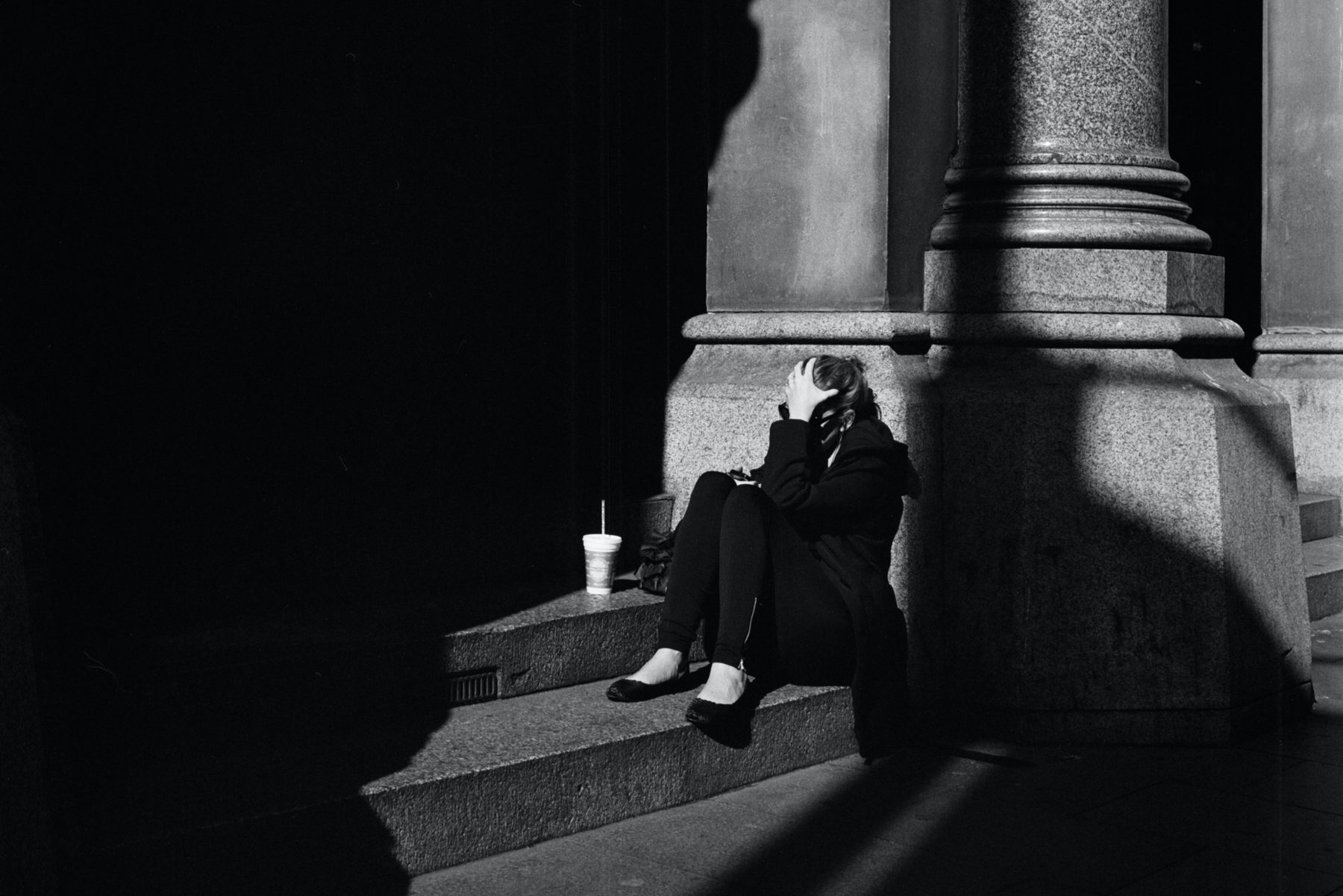Getting out of toxic relationships is grueling because it involves a lot of risks, but it also involves plenty of rewards. It may be difficult to recognize signs of toxicity or an unhealthy relationship because abusive partners often masquerade as well-intentioned, loving partners who just want the best for you.
Controlling partners often excuse their forceful, exploitative and limiting behavior by claiming they’re trying to protect you and keep you safe by preventing you from making the wrong decisions. The issue is that they decide what’s wrong and what’s right, what’s good and what’s bad, who you ought to commiserate with and who you ought not to confide in — not you. They are the ones in charge. They’re not interested in your security or safety, they’re interested in power and control.
A toxic relationship, then, is any relationship that involves confounding the truth, applying limitations upon your agency or ability, dictating your choices via force, coercion or manipulation, and/or using deception and so much more.
Trickery and deceit in a relationship looks like more than mere cheating or lying by omission. It can also take the form of a partner actively attempting to impel you to make decisions based on somebody else’s rules so as to express power, dominion and authority over you and suppress your individual will.
These kind of relationships tax and drain you, but they also convince you everything is happy and normal, and if not, you’re at fault, or you are somehow unworthy and lacking, and because you are this way, not only are you defective, but your partner’s mistreatment of you is not only acceptable but excusable.
Toxic relationships often involve all sorts of mind games and mental sorcery that can make you feel “crazy” or unhinged, and even emotionally unstable. Toxic partners may not try to convince you that you belong in a mental institution with a straitjacket, but they can gaslight you into thinking you are the troubled one or the loony partner in the relationship. They do this so you cannot call out their bad behavior, because once they convince you that you’re off your rocker or making up what you see, you will actually fail to identify their toxicity because they have managed to deceive you into thinking what you intuit and identify as real is not the true reality of the situation.
Here’s how to identify the traits of a toxic relationship, many of which distort your thinking and motivate you to dismiss your own intuition. Identifying these red flags can help alert you to the fact that you need to make changes in your romantic life and address the disparity of power in your relationship. Unhealthy relationship dynamics often start with unequal power dynamics. You can start by asking yourself these questions:
Who has the power?
First and foremost, ask yourself who has the power in the relationship. The answer should be both of you, so if you hesitate to come to this conclusion, something’s wrong. The next question you should ask is: Does my partner ever make me feel powerless? Is this someone I can trust with my heart and life? Is this someone I can be honest with, or must I walk on eggshells around this person?
Am I in danger?
If you are thinking you are in a physically unsafe, volatile relationship, the answer is obviously yes, but it’s also important to conceive of emotional danger when answering this question.
A relationship characterized by emotional safety doesn’t involve not being able to communicate your feelings without threat of retaliation or threat to your psychological well-being. It also doesn’t involve retribution or emotional vindictiveness and manipulation. A partner who loves you doesn’t have to convince you of their love by saying something like “Nobody loves you more than me and no one ever will, remember that,” or “You’ll never find anybody better than me.”
A toxic partner won’t mind threatening you via emotional blackmail, for instance, by threatening suicide if you try to leave them or don’t answer their midnight calls and desperate voicemail messages and save them just in time. Similarly, an emotionally unsafe partner will say something like, “Don’t bother showing up at my house tonight if you’re not going to cut off that guy from work” with zero remorse. Oftentimes, manipulative partners will use their love for you as an excuse to control and shape your life, saying or insinuating something along the lines of “If you love me, prove it.”
These kinds of partners will constantly put you in undesirable situations, make demands upon your time and energy, threaten to break up with you, dump you and your possessions or even kick you out of the house if you don’t do what they want.
They will stifle your autonomy and chasten or reprimand you for failing to obey them or submit to them. They will order you to come home when they want you to, prove you’re not interested in other prospective partners, and command your absolute attention. When you refuse to cooperate, they will withhold love and affection from you, as well as physical demonstrativeness, reciprocity and even respect and kindness. They will make you feel guilty for failing to live up to their expectations.
Living with them will feel a lot like living on edge, like you’re trespassing on somebody else’s property. They will make you feel like nothing you do is right or you have done something bad. You will begin to apologize just at the sight of them, believing yourself to have committed some unforgivable error, which leads me to my next question.
How often do I apologize?
If you find yourself saying sorry for every slight issue, you’re probably in a toxic relationship. If you feel the need to repent for actions such as failing to have dinner cooked before your partner arrives home or leaving your phone messages unanswered instead of picking up the phone or failing to text your partner every hour (all proof of suspicious activity), then you are certainly in the red (danger) zone in your relationship. You shouldn’t have to apologize for not existing right according to your partner’s rules. You shouldn’t be expected to conform to any outlined rules for your behavior in the first place. If you find yourself constantly apologizing without just cause, you’re most likely in a toxic relationship.
What does freedom look like?
Figuring out what freedom means for you can help you identify whether or not you’re in a relationship worth staying in. If freedom to you is being able to watch “Mary Poppins” on the couch during a late-night movie-fest whenever you want, and your partner disallows it, then you know freedom is unattainable within your current relationship. If freedom looks like taking a vacation with your closest girlfriends without asking for permission or visiting your folks in your hometown once a blue moon without the expectation that you only go if your partner is also free and able to go with you, then you might have to re-examine whether your relationship can grant you the liberty you desire. If freedom looks like not having your partner breathe down your throat and scream at you for the laundry not being done in time for game night (Sunday night football or Saturday night boys’ hockey), then it’s time for you to take the keys to the ignition and gas it — put yourself in the driver’s seat for once.
Toxic relationships convince you that you have no power or there’s a risk involved in doing what you want, when you want, unless your partner agrees. If you take control back, you can reclaim the power to exist, will and be. You must ask yourself if the price of freedom is worth it, once you decide the value of your freedom independently of your partner’s wishes.
What is happiness to me?
There can be no future or present without personal happiness. In order to realize you’re in a toxic relationship, you have to first realize you’re unhappy.
It’s very easy for us to forget what makes us happy when we put other people first, teaching them and ourselves that our needs come second. In reality, we cannot have healthy relationships if we cannot sustain our own idea of happiness, especially if we cannot make ourselves happy without needing to take care of someone else so as to feel needed or valued.
Many of those who find themselves in toxic relationships landed there because their partners preyed on their low self-worth, preyed on the knowledge that these individuals did not feel like they deserved to be happy for whatever reason, and so, they were content with their misfortunate lot in life and their toxic partners. If you want to remove yourself from a toxic relationship, you must conceive of happiness as a viable, attainable reality instead of just a passing dream.
Your happiness is not fleeting because you’re fixated on the impossible, your happiness is fleeing — and fleeting — because you keep finding yourself stuck in situations that don’t support your growth and development. When you cease to remain stuck in stagnant relationships that defile your personhood, you will find that you can achieve sustainable happiness that doesn’t depend on you lowering your worth, sacrificing your choices and dignity, and giving up anything that makes you feel full with life or enriches and nourishes you.
If you’ve had to consider any of the aforementioned questions, then you know you’re probably in a toxic relationship.
















